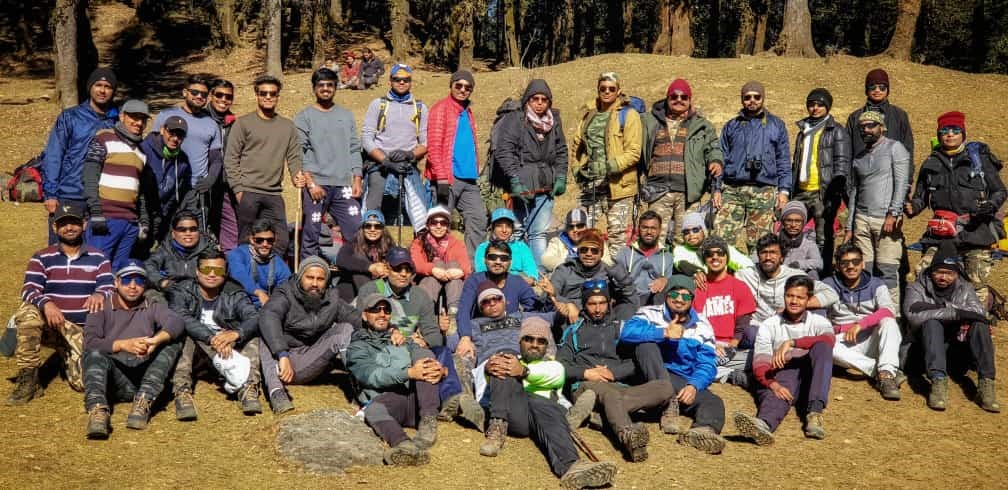Arjun Singh, a 23-year-old from Saur village in Uttarakhand, India, is a high-school graduate who assists his father in running a small grocery shop. Arjun has always wanted to work as a trekking guide, learning the ropes at a small adventure tour company called Sunshine Adventures, also owned by his father, which arranged local logistics for trekking groups. However, a lack of formal training meant that his skill set was limited, and he could only be involved in backend work.
There are many young people like Arjun in Uttarakhand. Limited livelihood opportunities in rural areas, coupled with increasing natural disasters, have impacted agriculture, forcing villagers, particularly young people, to migrate to urban areas to seek employment. But the rising popularity of mountaineering and adventure sports in the Uttarkashi region offers an opportunity to stem this tide.
Nestled in the lap of the mighty Himalayas, Uttarakhand is blessed with rich biodiversity. It is home to breathtaking alpine meadows, large glaciers and technically challenging peaks that attract trekkers, mountaineers and nature enthusiasts from all over the world. There are numerous trekking trails in the Gangotri and Govind National Parks, including Gaumukh, Tapovan, Har-ki-Dun, Kedarkantha Peak, to name a few.
Adventure tourism can contribute directly to rural economies and, over a period of time, foster meaningful cross-cultural linkages between travellers and local communities. However, to tap into the potential of this sector, it is important to create a well-trained workforce that can cater to the demands of the industry. Adventure tourism involves travelling to remote areas where outdoor skills like navigation, search and rescue, first aid, etc., are critical to avoid casualties and to build a reputation as a safe and secure destination.
This is where UNDP comes in. Young people in the region look at the trekking and tourism industry as an exciting source of employment. With UNDP already working on participatory conservation models for snow leopard landscapes in four Himalayan states (SECURE Himalaya), it is well placed to train young people in Gangotri and Govind with the skills required to tap into this growing market.
The appetite among the region’s youth was apparent at a 15-day training programme on “Adventure Tourism and Mountaineering” organized by SECURE Himalaya in collaboration with the State Forest Department and Nehru Institute of Mountaineering (NIM), Uttarkashi.
Arjun was one of the 24 participants who received training in rock climbing, river crossing, first aid and rescue techniques. The participants also learned about the importance of flora and fauna, local ecology and key wildlife habitats that would not only enrich their skill set in terms of engagement with clients but would also make them the ‘eyes and ears’ of the forest department as they traverse high-altitude areas, observe the ecosystems and report the patterns and changes. After the workshop, they received certificates that helped them find jobs with local tour operators.

Today, as a result of the training, Arjun is aware of the technical and safety aspects of the work and is also more confident of his ability to handle clients. In addition to expanding his father’s business, he has started freelancing as a trip leader for other operators.
This season, he has taken more than 50 clients for treks in the Govind region. Of the nine young people from the Govind Landscape who received the training, four are already working as trekking guides, handling clients, setting up camps and coordinating other logistics. They are able to earn around INR 10,000 to INR 15,000 a month on average during trekking season.
Arjun says, “After completing the NIM training programme, I am more confident about taking tourists for trekking. I have acquired skills that one needs during emergency situations. Tourists are also keener to hire certified guides as they find them more credible. We have also formed a network so that people can directly book our services. I am now keen to learn more about the flora and fauna because such additional knowledge will help me to earn more.”
A skilled workforce in adventure tourism is promising for conservation, particularly since income can be earned from selling nature as an experience rather than unsustainably harvesting its resources. This could herald a new landscape-based approach to conservation, where the local inhabitants are equal stakeholders and partners in conservation efforts.
Dhakad is a UNV assigned as a Project Associate in Uttarakhand). Joshi is National Livelihoods Specialist, SECURE Himalaya Project





